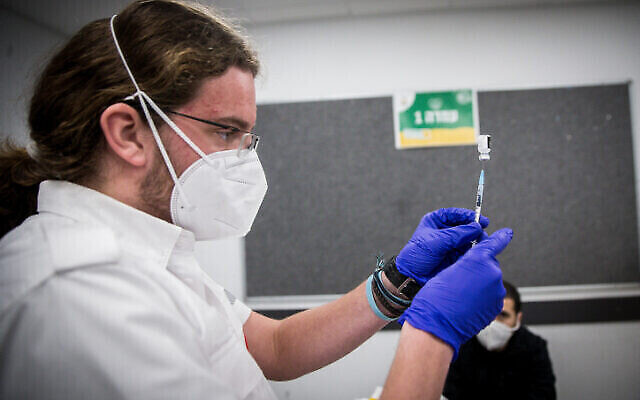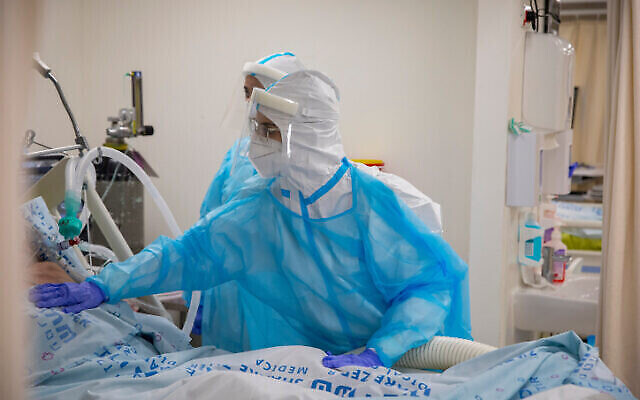Vaccine Found 92% Effective in Israel, in First Controlled Result Outside Trials
Only 31 out of 163,000 fully vaccinated Maccabi members caught virus, indicating Pfizer shots living up to expectations; expert: Results ‘well within expected standard deviation’

Pfizer’s coronavirus vaccine is showing 92 percent effectiveness in Israel, according to the world’s first big controlled investigation on how it works outside of clinical tests.
Only 31 out of 163,000 Israelis vaccinated by Maccabi Healthcare Services caught coronavirus in their first 10 days of full-strength protection, its top vaccine statistics analyst, Anat Ekka Zohar, told The Times of Israel on Thursday.
In an equivalent sample of unvaccinated Israelis, some 6,437 were diagnosed in the same timeframe.
“This is very, very good news,” Ekka Zohar said. “It is the first study in the world that looks at such a large number of fully vaccinated patients.”
Pfizer achieved 95% efficacy in clinical trials, and doctors worldwide are looking to Israel with bated breath to see whether the vaccine comes close to that figure in real-world use.

Prof. Eyal Leshem, infectious diseases specialist at Sheba Medical Center, told The Times of Israel that people should be excited by the strong result, and not concerned by the 3% shortfall. “This is a very high figure, well within the standard deviation we would expect,” said Leshem.
Maccabi figures released earlier this week indicated that vaccination is working very well, but lacked a control group that made it hard to extract an accurate effectiveness rate.

Now, Maccabi has analyzed a control group of Israelis with similar age and health profiles of vaccinees, composed entirely of people haven’t been infected or received shots.
This allowed Maccabi to calculate its real-world effectiveness rate. It used complex calculations, similar to those used by Pfizer in trials, to compare vaccines and the control group and determine the extent to which the vaccine appears to be preventing infection.
“This is very exciting,” said Ekka Zohar. “It’s a very high level of efficiency and we are seeing a very low percentage of coronavirus among the patients who have taken both shots.”
Full protection is believed to kick in a week after the second shot, so Maccabi’s data covers all of its members who are between seven and 16 days after receiving it.
Ekka Zohar said she was encouraged by the light symptoms of vaccinated people who caught the coronavirus, as well as by the low infection rates. “None have been hospitalized and they have very very light symptoms,” she stated. “We are talking about headache and a mild feeling of sickness, and they are almost completely without fever. It’s really a very light illness.”
Israel’s other health provider have yet to present data with a control group, meaning that while the Health Ministry released data on the whole nation on Thursday, it didn’t help build a picture of effectiveness levels.
The Health Ministry reported that there have been 317 infections among 715,425 vaccinees, a rate of 0.044%, or about double the infection rate seen among Maccabi members. However, Maccabi members tend to come from a higher socioeconomic background and live in areas with low infection levels. Ekka Zohar said that if there were a national control group, it would likely indicate a similar effectiveness level to Maccabi’s data.



comments